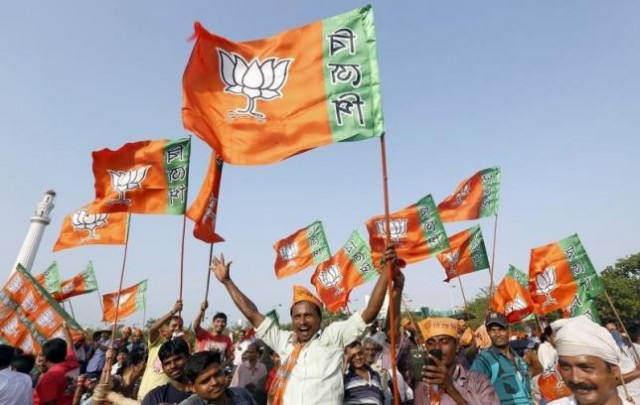Emergency of 1975 in India: Lessons for Opposition
Degeneration of the national discourse is being seen in India today

PHOTO: REUTERS / File
Senior BJP leader LK Advani had, in 2016, said that India was still susceptible to an emergency. Many have expressed concern that Modi’s second term, with even a bigger mandate, could breed a dictatorship. However, in my opinion, it augurs well, not for the ruling party, but for the opposition of the day which should learn a few lessons from the egregious violation of the democratic system that India witnessed in the 70s.
On June 12, 1975, Justice Jagmohanlal Sinha of the Allahabad High Court (AHC) held Indira guilty of misusing government machinery, barring her from holding elected office for six years. When the matter reached the Supreme Court, Justice VR Krishna Iyer, on June 24, allowed her a conditional stay sans her participation in the parliamentary proceedings for a month until the hearing of her appeal in the Supreme Court. From this point onward, there were two possibilities: firstly, the SC would uphold the AHC’s judgment and Gandhi would cease to hold public office; and secondly, the SC would fall to Gandhi’s influence, with Justice Ray’s appointment as Chief Justice of India.
However, prior to either of these eventualities coming into being, on June 25, Jayprakash Narayan, ‘the Gandhi of independent India’ launched what would come to be known as the ‘JP Revolution’. He announced daily demonstrations in state capitals and district headquarters across the country. He appealed to the police and bureaucracy to obey the Constitution only. Deciphering the situation, Gandhi declared an emergency on the night of June 25, 1975, citing a threat to national security due to internal disturbances. Now if JP and his supporters had waited till the top court heard Gandhi’s appeal in August, there had been a possibility that the AHC judgment would have been upheld and the emergency averted altogether. The second and greater possibility had been that the SC would have overturned the AHC judgment. Later, in fact, Gandhi made it impossible for them to hear the appeal by means of the 41st Amendment after imposing the emergency. The only hope for JP was dashed as the SC was not allowed to hear the appeal.
The lesson which Congress, the opposition of the day, must take home from this chapter from the past is that merely ranting about how the government can potentially become tyrannical is pointless if democratic institutions are not allowed to fully discharge their functions. The opposition must lend democratic institutions a chance to perform their functions freely. Only when justice is not done and an unholy nexus between two organs of the government is seen, should a hue and cry be raised? In case of the emergency, Justice Iyer had already shown that he, at least, would not buckle to political pressure by only granting Gandhi a conditional stay and not the absolute stay that she expected.
A degeneration of the national discourse is being seen in India today. The opposition parties have laid siege to independent democratic institutions. Wild and ludicrous allegations are being put on fiercely independent institutions like the Election Commission (EC) of India, by alleging that the EC turned a blind eye towards alleged electronic voter machine tampering done by the BJP. The Congress did not even spare the office of the Chief Justice of India (CJI) by bringing a frivolous motion seeking the impeachment of former CJI Justice Dipak Mishra. The present scenario of compulsive opposition and relentless attacks on independent democratic institutions like the EC and the SC by the opposition just in order to grind political axes with the ruling party is condemnable. While keeping in mind the hasty decisions that the opposition took during the emergency, the opposition of the day holds a greater responsibility towards letting democratic institutions function freely and subsequently in reviewing their actions and holding them accountable.
Published in The Express Tribune, July 3rd, 2019.
Like Opinion & Editorial on Facebook, follow @ETOpEd on Twitter to receive all updates on all our daily pieces.












1724319076-0/Untitled-design-(5)1724319076-0-208x130.webp)

COMMENTS
Comments are moderated and generally will be posted if they are on-topic and not abusive.
For more information, please see our Comments FAQ